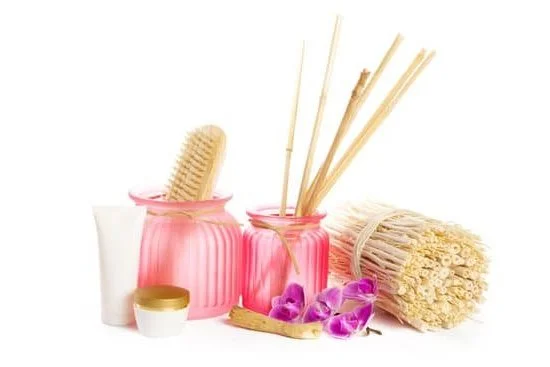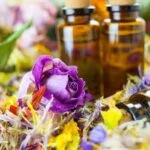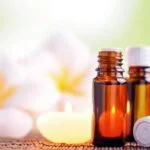Aromatherapy is a holistic healing practice that utilizes the power of scent to promote relaxation, reduce stress, and enhance overall well-being. Dating back thousands of years, aromatherapy has its origins in ancient civilizations such as Egypt, China, and India. It involves the use of essential oils extracted from plants and flowers to stimulate the senses and provide numerous therapeutic benefits.
Stress reduction is one of the key aspects of aromatherapy. In today’s fast-paced and demanding world, stress has become a common issue that affects people physically, mentally, and emotionally. Chronic stress can lead to a variety of health problems and impact our quality of life. Aromatherapy offers a natural and effective solution for managing stress levels and promoting a sense of calmness and balance.
When we inhale essential oils, they interact with the olfactory system in our brain, which is responsible for processing smells. This interaction triggers a response in our limbic system, which is closely tied to emotions, memory, and behavior.
Certain essential oils have been found to have a direct impact on reducing anxiety, lowering blood pressure, improving sleep quality, and boosting mood. By incorporating aromatherapy into our daily lives, we can harness these benefits to create a more relaxed and stress-free environment.
In this article, we will explore the fascinating world of aromatherapy and its link to stress reduction. We will delve into the science behind how aromatherapy interacts with our brain and body to bring about relaxation.
Additionally, we will uncover the most effective essential oils for stress reduction and discover how to create an ideal aromatherapy environment at home. Finally, we will discuss various techniques for incorporating aromatherapy into different situations in our lives and examine scientific research supporting its effectiveness in reducing stress.
Join us on this aromatic journey towards better stress management as we unlock the secrets of how aromatherapy can help you find balance amidst life’s daily pressures.
Understanding the Science Behind Aromatherapy and Stress Reduction
Aromatherapy is a form of alternative medicine that utilizes essential oils to promote relaxation and enhance overall well-being. While it may be seen as a holistic practice, there is scientific evidence that supports the effectiveness of aromatherapy in reducing stress levels.
One of the ways in which aromatherapy affects the body is through its interaction with the brain. When essential oils are inhaled or applied topically, their molecules enter the bloodstream and travel to the limbic system, a region of the brain responsible for emotions and memory. This triggers various neurological responses, including the release of neurotransmitters like serotonin that promote relaxation and reduce stress.
Moreover, certain essential oils have been found to have specific effects on the body that contribute to stress reduction. For example, lavender oil has been shown to decrease heart rate and blood pressure, inducing a state of calmness.
Bergamot oil has been found to have mood-enhancing properties and can help alleviate symptoms of anxiety and depression. These oils, along with others such as rosemary and ylang-ylang, can be used individually or in combination to create a personalized aromatherapy blend tailored to an individual’s specific needs.
| Essential Oil | Main Benefits | Specific Uses |
|---|---|---|
| Lavender | Reduces anxiety and induces relaxation | Add a few drops to a diffuser or diluted in carrier oil for massage |
| Bergamot | Mood enhancer; reduces symptoms of anxiety and depression | Dilute with a carrier oil and use in bathwater or apply topically on pulse points |
| Rosemary | Improves focus and mental clarity; relieves tension | Diffuse in a study or workspace, or add to carrier oil for a scalp massage |
| Ylang-Ylang | Promotes relaxation; helps alleviate feelings of stress and frustration | Add a few drops to bathwater or diffuse during meditation or self-care routines |
Understanding the science behind aromatherapy and its ability to reduce stress can empower individuals to incorporate this practice into their daily routine for enhanced well-being. By harnessing the natural properties of essential oils and their effects on the brain and body, aromatherapy offers a gentle yet powerful tool for managing stress levels and promoting relaxation.
Whether through inhalation, topical application, or other aromatic techniques, aromatherapy provides a natural and holistic approach to stress reduction that can be easily integrated into various aspects of daily life.
The Most Effective Essential Oils for Stress Reduction
When it comes to using aromatherapy for stress reduction, certain essential oils have been proven to be particularly effective. These essential oils have unique properties that promote relaxation and help alleviate the symptoms of stress. Here are some of the most popular and widely used essential oils for stress reduction.
Lavender oil tops the list as one of the best essential oils for stress reduction. Known for its calming and soothing effects, lavender oil has been used for centuries to promote relaxation and improve sleep quality. It helps reduce anxiety, ease tension, and create a sense of tranquility. You can use lavender oil in a diffuser, add a few drops to your bathwater, or even apply it topically by diluting it with a carrier oil.
Another essential oil that is highly beneficial for stress reduction is chamomile oil. Chamomile has gentle sedative properties that help calm the mind and relax the body. It is particularly useful for promoting a good night’s sleep and reducing feelings of irritability or restlessness caused by stress. You can add a few drops of chamomile oil to your pillow before bedtime or enjoy its calming effects in a warm cup of chamomile tea.
Citrus essential oils such as bergamot, orange, and lemon are also known to have mood-boosting properties that can aid in stress reduction. These oils have uplifting and invigorating scents that can help combat feelings of low energy and fatigue commonly associated with stress. Inhaling the aroma of citrus essential oils can help uplift your mood, increase focus, and create an overall sense of well-being.
Creating a Relaxing Aromatherapy Environment at Home
When it comes to creating a relaxing atmosphere for aromatherapy at home, there are several key factors to consider. The right environment can enhance the effectiveness of essential oils in reducing stress and promoting relaxation. Here are some tips for setting up an ideal space for your aromatherapy practice:
- Choose a dedicated space: Designate a specific area in your home where you can focus on your aromatherapy practice without distractions. This could be a corner in your bedroom, a cozy nook in the living room, or even a spare room transformed into a serene sanctuary.
- Clear the clutter: Before starting your aromatherapy session, take the time to declutter and tidy up the space. A clean and organized environment will help create a sense of calm and promote relaxation.
- Consider lighting: Optimal lighting can greatly contribute to the overall ambiance of your aromatherapy space. Natural light is ideal, but if that’s not possible, choose warm and soft lighting options such as candles or dimmable lamps.
- Set the mood with music: Music has a profound impact on our emotions and can significantly enhance the effects of aromatherapy. Choose soothing sounds like nature sounds, instrumental music, or gentle melodies to create an immersive experience.
- Use calming colors: The color scheme of your aromatherapy space can also play a role in promoting relaxation. Stick to calming colors such as soft blues, greens, or neutrals that evoke feelings of tranquility.
Now that you have created the perfect environment for relaxation and stress reduction through aromatherapy, it’s important to select the right tools for diffusing essential oils effectively. There are various diffuser options available in the market, including ultrasonic diffusers, nebulizing diffusers, and heat diffusers.
Ultrasonic diffusers are popular choices as they use water and ultrasonic vibrations to disperse a fine mist of essential oils into the air, providing both aromatherapy and humidity benefits. Nebulizing diffusers, on the other hand, deliver pure essential oil particles into the air without dilution, making them highly potent and effective. Heat diffusers use heat to evaporate essential oils and spread their aroma throughout the room.
It’s essential to choose an appropriate diffuser that suits your needs and preferences. Consider factors such as ease of use, timer settings, coverage area, and maintenance requirements before making a purchase.
In addition to selecting the right diffuser, choosing the appropriate essential oils for your specific needs is crucial for maximum relaxation. Different essential oils have distinct properties that can help reduce stress and promote calmness. Here are some popular essential oils known for their stress-relieving properties:
- Lavender oil: Lavender is widely recognized for its soothing effects on the mind and body. It promotes relaxation, reduces anxiety, and improves sleep quality.
- Chamomile oil: Chamomile has sedative properties that promote tranquility and aid in stress relief. It can also soothe irritability and create a sense of emotional balance.
- Ylang ylang oil: Ylang ylang is known for its ability to lower blood pressure and heart rate, inducing feelings of calmness and relaxation. Its sweet floral scent makes it a popular choice for aromatherapy.
- 4.Bergamot oil: Bergamot possesses uplifting qualities that can help relieve anxiety and enhance mood. Its citrusy aroma is refreshing and energizing.
- 5.Patchouli oil: Patchouli has grounding properties that can alleviate stress and anxiety by promoting emotional stability.
To effectively incorporate aromatherapy into your daily self-care routine at home, experiment with different combinations of these essential oils based on your preferences. Whether you choose to diffuse them in a room or use them topically through massage or bath, the right essential oils can have a profound impact on reducing stress and promoting overall well-being. Start by creating a relaxing environment and personalizing your aromatherapy practice to suit your unique needs.
Incorporating Aromatherapy into Daily Self-Care Routine
Aromatherapy is not just reserved for a spa day or a special occasion. It can be easily integrated into your daily self-care routine to enhance your well-being and reduce stress. By incorporating essential oils into skincare, bathing, and meditation practices, you can create a soothing and relaxing atmosphere that promotes inner calm and tranquility.
Skincare Routine
One way to incorporate aromatherapy into your daily routine is through your skincare regimen. Adding a few drops of essential oils to your facial cleanser or moisturizer can elevate the experience and provide additional benefits for your skin. For example, tea tree oil has antimicrobial properties that can help combat acne, while lavender oil possesses soothing properties ideal for sensitive skin.
Bathing Ritual
Transforming your ordinary bath into a sensory oasis can greatly contribute to reducing stress levels. Add several drops of essential oils to your bathwater, such as chamomile oil for relaxation or eucalyptus oil for its refreshing properties. The steam created by hot water will release the aroma of the oils, promoting deep relaxation as you soak away your worries and tensions.
Meditation Practice
Aromatherapy can also be intertwined with mindfulness and meditation practices. Before starting your session, choose an essential oil known for its calming effects, such as frankincense or bergamot, and place a few drops in an aromatherapy diffuser or on a tissue nearby. As you focus on deep breathing and clearing the mind, the aroma of the oil will help create a serene environment conducive to mental relaxation.
By incorporating aromatherapy into these everyday activities, you can infuse moments of tranquility throughout your day. Whether it’s during your skincare routine, bath time, or meditation practice, taking the time to indulge in the scents and benefits of essential oils can help melt away stress, promote relaxation, and enhance your overall well-being. Experiment with different oils and find the ones that resonate with you the most, making aromatherapy an integral part of your self-care ritual.
Aromatherapy Techniques for Stressful Situations
In our fast-paced, modern lives, we often find ourselves in stressful situations that can take a toll on our mental and physical well-being. Fortunately, aromatherapy offers a natural and effective solution for managing stress and finding moments of relaxation amidst the chaos. In this section, we will explore specific techniques for using aromatherapy to reduce stress in different situations.
One common source of stress is the workplace, where demands and pressures can be overwhelming. To combat workplace stress, try using a portable essential oil diffuser or a personal inhaler.
You can add a few drops of lavender or chamomile essential oil to these devices and discreetly inhale the calming aroma whenever you feel overwhelmed. Additionally, incorporating an essential oil blend known for its stress-relieving properties into your skincare routine can help create a sense of calm throughout the day.
Traveling can also be a stressful experience for many people, whether it’s due to airport delays or long car rides. Aromatherapy can provide much-needed relief during these journeys. One technique is to place a few drops of peppermint or eucalyptus essential oil onto a tissue or handkerchief and inhale deeply when needed. These invigorating scents can help alleviate travel fatigue and promote feelings of alertness.
Before an important event, such as a presentation or performance, anxiety and nervousness may arise, affecting our ability to perform at our best. To reduce pre-event stress, consider creating a calming atmosphere with aromatherapy. Diffusing Bergamot or Ylang Ylang essential oils in the room prior to the event can help relax your mind and body. Applying diluted clary sage or frankincense essential oils to your pulse points can also provide immediate comfort during these tense moments.
These are just a few examples of how aromatherapy techniques can be applied in different stressful situations. By having a strategic arsenal of essential oils and diffuser options at your disposal, you can effectively manage stress and promote a sense of calm whenever and wherever it is needed. With the right combination of scents tailored to your needs, aromatherapy can be a powerful tool in your stress relief toolkit.
Research and Studies Supporting the Effectiveness of Aromatherapy in Stress Reduction
Scientific Studies on Aromatherapy and Stress Reduction
Aromatherapy has gained significant attention in the field of alternative medicine as a potential method for reducing stress and promoting relaxation. Over the years, numerous scientific studies have been conducted to explore the effectiveness of aromatherapy in managing stress. These studies have yielded promising results, shedding light on the physiological and psychological benefits of using essential oils for stress reduction.
One study published in the Journal of Alternative and Complementary Medicine investigated the effects of lavender essential oil on stress levels in participants. The study found that inhalation of lavender oil significantly reduced stress and anxiety levels compared to a placebo group. The researchers attributed these effects to lavender’s ability to modulate brain waves and decrease cortisol levels, a hormone associated with stress.
The Role of Essential Oils in Stress Reduction
Essential oils play a crucial role in aromatherapy’s effectiveness for stress reduction. Each essential oil possesses unique chemical compounds that interact with receptors in the brain, triggering physiological and emotional responses. For instance, research has shown that bergamot essential oil can activate certain neurotransmitters such as serotonin and dopamine, which are linked to mood regulation and stress relief.
Another popular essential oil for stress reduction is chamomile oil. Chamomile contains compounds called bisabolol and chamazulene, known for their calming properties. When inhaled or applied topically, chamomile oil can help alleviate anxiety symptoms and promote better sleep quality.
The Benefits of Research on Aromatherapy for Stress Reduction
The research supporting the effectiveness of aromatherapy in stress reduction provides valuable insights into its mechanisms and benefits. Understanding how specific essential oils interact with our brain and body allows us to make informed choices when selecting oils tailored to our individual needs.
Moreover, scientific studies help establish aromatherapy as a credible therapy option for stress management. The findings give recognition to aromatherapy as a natural and evidence-based method for reducing stress levels, making it more accessible and widely accepted in healthcare settings.
By expanding our knowledge through research, we can confidently incorporate aromatherapy into our self-care routines and seek professional guidance to maximize its benefits. As the body of research grows, so does our understanding of how aromatherapy can contribute to overall well-being.
Precautions and Safety Guidelines for Aromatherapy
Aromatherapy is generally considered safe when used properly, but it is important to take precautions and follow safety guidelines to ensure a positive and safe experience. By following these precautions, individuals can minimize the risk of adverse reactions and maximize the benefits of aromatherapy for stress reduction.
Proper Dilution
Essential oils are highly concentrated substances that should never be used undiluted on the skin. It is crucial to dilute essential oils with a suitable carrier oil such as almond oil or coconut oil before applying them topically. This not only helps to prevent skin irritation or sensitivity but also allows for better absorption and effectiveness of the essential oil.
Patch Test
Before applying any essential oil directly to the skin, perform a patch test to check for any potential allergic reactions. Apply a small amount of diluted essential oil to a small area of skin (such as the inner forearm) and wait 24 hours to observe any signs of irritation or redness. If no adverse reactions occur, it should be safe to proceed with using the essential oil.
Avoid Contact with Eyes and Mucous Membranes
Essential oils should never come into direct contact with the eyes or mucous membranes such as the nose or mouth. If accidental contact occurs, immediately flush the area with plenty of cool water and seek medical attention if necessary.
Safety During Pregnancy and Breastfeeding
Pregnant women should exercise caution when using essential oils, especially during the first trimester when there is an increased risk of miscarriage. Some essential oils are known to stimulate uterine contractions, so it is best to consult with a healthcare professional before using any essential oils during pregnancy or while breastfeeding.
Medication Interactions
Certain medications may interact with specific essential oils, potentially causing unwanted side effects. If you have any pre-existing medical conditions or are taking medications, it is advisable to consult with a healthcare professional or aromatherapist before using any essential oils.
Store Essential Oils Properly
To maintain the quality and potency of essential oils, it is important to store them in a cool, dark place away from direct sunlight and heat sources. Additionally, keep them out of reach of children and pets to prevent accidental ingestion.
By following these precautions and safety guidelines, individuals can safely incorporate aromatherapy into their stress reduction routine. Remember that each person may react differently to essential oils, so it is always wise to start with small amounts and listen to your body’s response. With proper care and awareness, aromatherapy can be a natural and effective tool for reducing stress and enhancing overall well-being.
Conclusion
In conclusion, aromatherapy offers a natural and holistic approach to reducing stress and promoting overall well-being. Through the use of essential oils, aromatherapy has the ability to interact with the brain and body, promoting relaxation and alleviating stress levels. The benefits of incorporating aromatherapy into a daily self-care routine are vast, from improved focus and mood to increased feelings of calmness and tranquility.
The effectiveness of aromatherapy in stress reduction is supported by scientific studies and research papers. These studies have shown that certain essential oils have the ability to reduce cortisol levels, the hormone associated with stress, as well as promote better sleep quality, decrease anxiety levels, and enhance overall emotional well-being. The credibility of aromatherapy as a stress management technique is further solidified by these findings.
When incorporating aromatherapy into your life, it is important to follow safety guidelines and precautions. Proper dilution of essential oils is crucial to avoid adverse reactions or allergies. Additionally, it is important to consider potential interactions with certain medications. By being mindful of these precautions, you can safely enjoy the benefits of aromatherapy without any risks.
Incorporating aromatherapy into your daily routine not only provides immediate stress relief but also contributes positively to your long-term well-being. By creating a relaxing environment at home with the right diffuser and essential oils, integrating essential oils into skincare and bathing routines, or using specific techniques for stressful situations, you can effectively alleviate stress on a regular basis.
By exploring the world of aromatherapy, you open yourself up to a natural solution for stress reduction that goes beyond temporary fixes. Aromatherapy offers an opportunity for self-care that promotes balance and harmony within oneself. So why not give it a try? Discover the power of essential oils in reducing your stress levels and nurturing your overall well-being.
Frequently Asked Questions
What does aromatherapy do for stress?
Aromatherapy has been found to have a positive impact on stress levels. When essential oils are inhaled, their aromatic molecules stimulate the olfactory system, which is connected to the limbic system in the brain. This region of the brain plays a crucial role in controlling emotions and memories.
The scent molecules can trigger certain responses within the brain, leading to relaxation and stress reduction. Different essential oils have distinct properties that can promote calmness, reduce anxiety, and uplift mood, thus helping to alleviate stress.
How can scents reduce stress?
Scents have the power to reduce stress because they directly affect our emotions and mood. Our sense of smell is closely linked to our limbic system, which controls our emotions and behaviors.
Certain smells can trigger positive emotional responses like relaxation, tranquility, and happiness, while others may evoke negative emotions such as anxiety or sadness. By inhaling specific scents through aromatherapy or by using scented products like candles or diffusers, we can influence our limbic system positively and induce feelings of calmness or relaxation.
How do you use essential oils for stress?
Essential oils for stress relief can be used in various ways depending on personal preference and convenience. One common method is inhalation therapy where a few drops of essential oil are added to a diffuser or applied onto a tissue or cloth for direct inhalation. This allows the scent molecules to enter the nose and reach the olfactory receptors quickly, providing rapid calming effects.
Another option is topical application by diluting essential oils with a carrier oil like coconut or jojoba oil before massaging onto specific areas such as temples, wrists, or necks for absorption into the bloodstream. Essential oils can also be added to bathwater for a relaxing soak or used during meditation sessions by applying them on pulse points for an enhanced sense of tranquility during mindfulness practices.

Are you looking for a natural way to improve your health and wellbeing?
If so, aromatherapy may be the answer for you.






